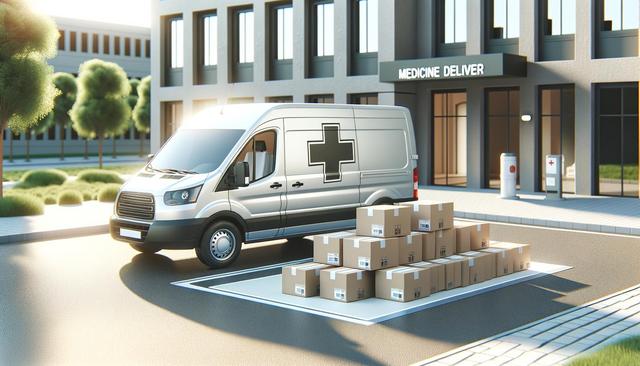
Essential Guide to Medicine Delivery Driver Roles and Opportunities
The Rise of Medicine Delivery Services
The increasing demand for convenient healthcare solutions has led to the rise of medicine delivery services. These services bridge the gap between pharmacies and patients, ensuring that medications reach those in need promptly and efficiently. The role of medicine delivery drivers is crucial in this logistical chain, as they are responsible for the safe and timely transport of pharmaceuticals. This service not only improves patient convenience but also ensures compliance with treatment plans, ultimately leading to better health outcomes. As the healthcare landscape evolves, the importance of these drivers continues to grow, particularly in areas where patients have limited access to local pharmacies.
Responsibilities of a Medicine Delivery Driver
Medicine delivery drivers have a range of responsibilities that are vital to the healthcare delivery process. Their day usually starts with receiving and organizing the list of deliveries from the pharmacy. They must ensure that all medications are accurately packed and labeled for each patient. Throughout their delivery route, drivers must adhere to strict guidelines to ensure the security and privacy of the pharmaceuticals they transport.
Key responsibilities include:
- Maintaining the integrity of medications by storing them at the correct temperature.
- Verifying patient identity upon delivery to ensure the right recipient receives the medication.
- Handling any delivery obstacles, such as traffic or weather conditions, to ensure timely service.
- Providing excellent customer service by answering any patient questions about delivery times or procedure.
Impact on Patient Care
The impact of medicine delivery drivers on patient care is significant. By providing a reliable and efficient service, they allow patients to focus on recovery and well-being instead of worrying about obtaining their medications. This is particularly beneficial for elderly or disabled patients who may find it challenging to visit a pharmacy in person. Moreover, medicine delivery services can help reduce the risk of exposure to illnesses, which is crucial during health crises like pandemics. Therefore, these drivers play an essential role in improving healthcare accessibility and enhancing the quality of life for those they serve.
Challenges Faced by Medicine Delivery Drivers
While medicine delivery drivers provide an invaluable service, the role is not without its challenges. Drivers must navigate logistical hurdles, such as traffic congestion and route planning, to ensure timely deliveries. Additionally, they must manage the physical demands of the job, which can include lifting and carrying packages of varying weights. There are also emotional challenges, as drivers often interact with patients who are dealing with serious health issues. This requires a level of empathy and professionalism that can be demanding but rewarding when drivers see the positive impact of their work on patient lives.
Opportunities for Growth in Medicine Delivery
The field of medicine delivery offers numerous opportunities for growth and advancement. As demand for these services increases, so does the need for skilled and reliable drivers. Many companies provide training programs that enhance the skills of their drivers, such as customer service techniques and efficient delivery methods. Moreover, the industry offers opportunities for career progression, with positions such as route coordinator or logistics manager available to those looking to advance their careers. For individuals interested in healthcare logistics, the role of a medicine delivery driver can serve as a valuable stepping stone to broader opportunities within the field.
Conclusion
Medicine delivery drivers are vital to the healthcare system, providing a crucial link between pharmacies and patients. Their role not only enhances patient care by ensuring timely and secure medication delivery but also plays a significant part in improving healthcare accessibility. As the demand for these services continues to grow, so do the opportunities for individuals within this field. By understanding the responsibilities and challenges faced by medicine delivery drivers, we can appreciate their contribution to healthcare logistics and the positive impact they have on patient outcomes.